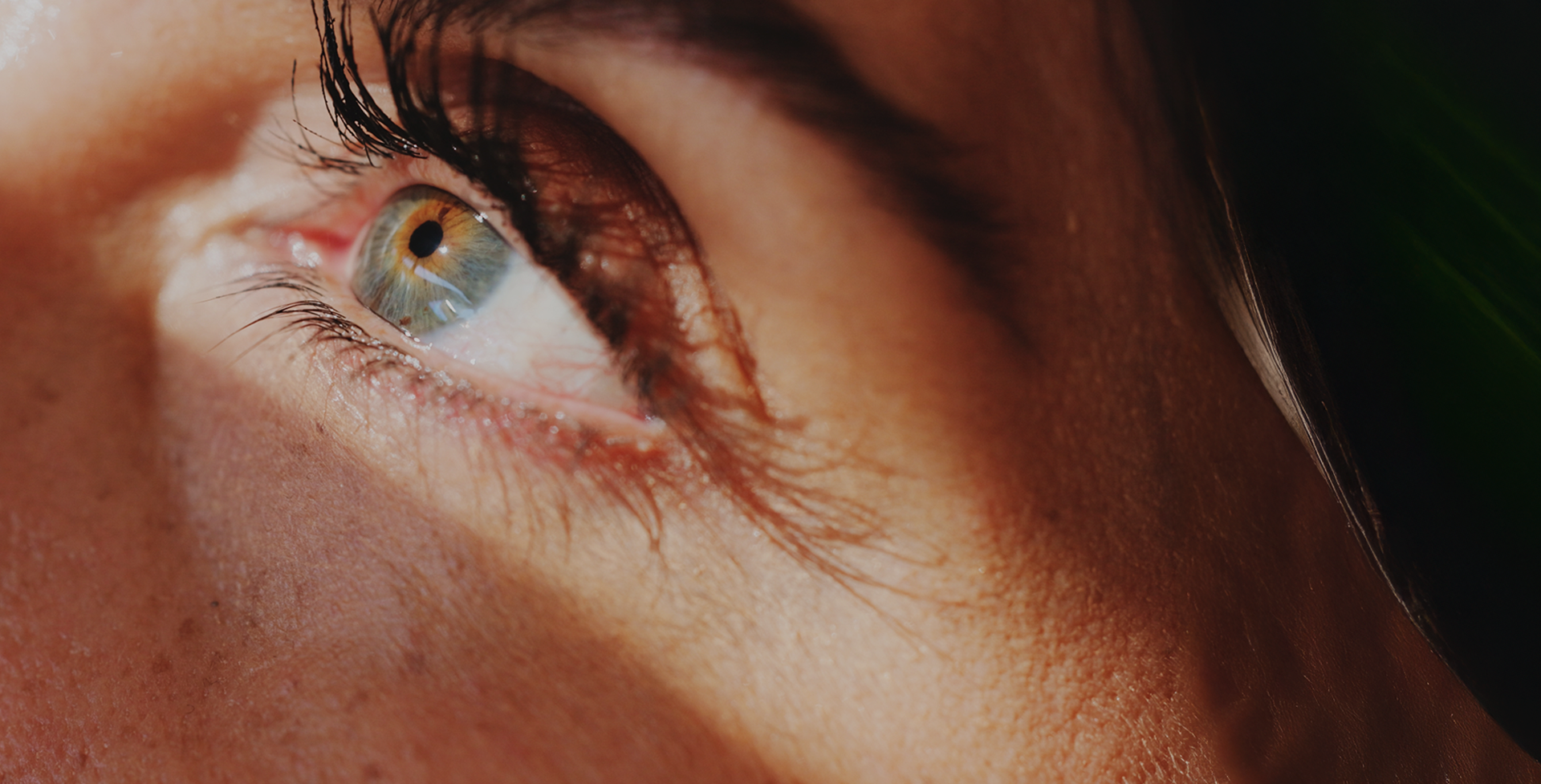
Keratoconus
Our Office Was Established to Provide Exceptional Care for Keratoconus, and the Majority of Our Patients Have This Disease
Request an Appointment
We provide the highest quality service to all our patients. Use the form below to request your appointment. Please note that we will reach out to you first to confirm your appointment or to provide you with an alternative date. You may also call us to request an appointment. Thank you!

The Keratocunos
Expert in Kansas
Around 75% of patients at the Contact Lens Institute of Kansas have keratoconus, a condition that is one of our primary focuses, setting us apart as a highly unique practice. The main focus of our office is providing vision solutions for keratoconus, which has led us to develop a deep expertise in maximizing patients’ vision and comfort in contact lenses. This includes maximizing long-term vision and ocular health by closely monitoring for potential progression with advanced technology.
At the Contact Lens Institute of Kansas, the focus isn’t on a broad range of patients and eye conditions, but rather on providing outstanding care and achieving the best visual outcomes for those with keratoconus and similar corneal conditions.
Dr. Letourneau has extensive experience caring for individuals with keratoconus. The Contact Lens Institute of Kansas was specifically designed to provide the best possible care for keratoconus. We provide care in a setting that emphasizes personalized, one-on-one attention, with plenty of time for questions, and some of the best technology nationwide for treating keratoconus.
What is Keratoconus?
Keratoconus is an ocular condition in which the cornea weakens and acquires a conical shape. This is often accompanied by thinning of this part of the cornea, and imperfections in the corneal curvature (astigmatism), which can become increasingly irregular and difficult to correct with glasses and conventional soft contact lenses.
Keratoconus usually occurs in both eyes, but due to significant asymmetry, many patients only notice impaired vision when their stronger eye is affected. By then the condition may already have caused severe and permanent loss of vision in the other eye. The condition usually begins in the late teens or early twenties. Keratoconus is much more common than previously thought. Recent studies have demonstrated that as many as 1 in 500 people may be affected by keratoconus.
Early forms of the disease can be undetected unless advanced scans of the surface of the eye are performed. For mild cases of keratoconus, eyeglasses or soft contact lenses may provide the patient with clear and comfortable vision. For moderate to advanced cases of keratoconus, Eyeglasses or soft contact lenses will not provide clear vision, but specialty contact lenses can provide great vision!
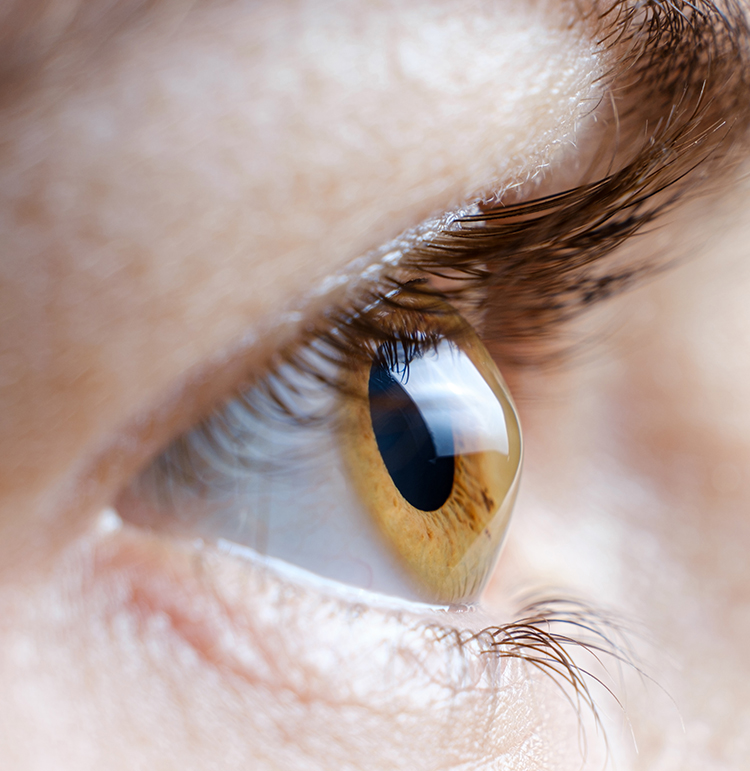
Specialty Contact Lenses
as a Treatment Option for Keratoconus
There is currently no cure for keratoconus, but at the Contact Lens Institute of Kansas, we offer a variety of different management options for keratoconus. Often the best treatment option is a scleral contact lens, and we specialize in both free-form scleral lenses and traditional scleral lenses. Scleral lenses are designed to “vault” over the cornea and land on the white part of the eye.
Since scleral contact lenses are designed to avoid contact with the cornea, the wearer should feel entirely comf ortable wearing them. The goal of scleral contact lens wear is to achieve clear vision without the sensation of having a contact lens in the eye.
In addition to scleral contact lenses, there are other vision correction options for keratoconus, including RGP (rigid gas permeable) lenses and custom soft contact lenses.
The Contact Lens Institute of Kansas has technology designed specifically for patients with keratoconus. This technology collects up to 240,000 unique data points, and our doctors use this data to design a fully customized scleral contact lens.
Does Keratoconus
Progress Over Time?
Keratoconus typically becomes apparent between the ages of 10 and 25. It usually progresses steadily until about the age of 40, but some patients can experience more rapid progression. The disorder’s progression usually stops around the age of 40, but this may vary from patient to patient.
What is Corneal Cross-Linking (CXL),
and How Does it Help Treat Keratoconus?
Corneal cross-linking (also known as cross-linking) is a minimally invasive surgical procedure that uses ultraviolet light and eye drops to strengthen the collagen fibers in the cornea. While corneal cross-linking is helpful with strengthening the cornea and preventing further deterioration of vision, it is important to note that often patients still require scleral lenses to achieve clear vision.
A “cross-linking evaluation” is a common type of office visit that we perform to determine if cross-linking may be a good option for your eyes. Many doctors in the Kansas area refer their patients to our office for cross-linking evaluations, as there are limited offices in Kansas with tomography systems to detect the earliest signs of progression with keratoconus.

Eaglet Scan
The Contact Lens Institute of Kansas has cutting edge technology that allows Dr. Letourneau to fit scleral lenses that match the exact shape of the patient's eye. The Eaglet scan is what enables us to get almost an exact mold of the cornea, limbus and large areas of the sclera. This ultimately leads to a more comfortable custom lens and a better overall patient experience.

Why Us?

The Doctor
Dr. Letourneau and his team are experts in treating keratoconus.
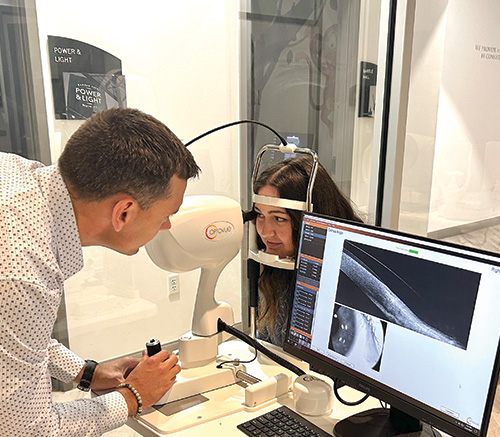
Advanced Technology
Our office features the Eaglet Eye Surface Profiler and corneal topography, allowing Dr. Letourneau to design highly customized scleral lenses for improved comfort and vision.
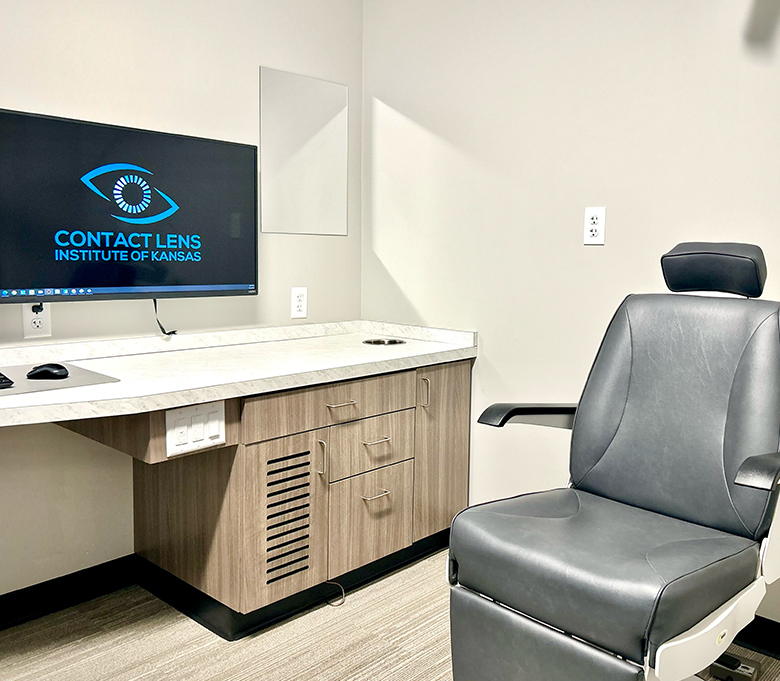
Affordability
We keep our overhead costs low and offer very competitive prices as a result. We have monthly payment options available and also accept CareCredit™, HSA, & FSA
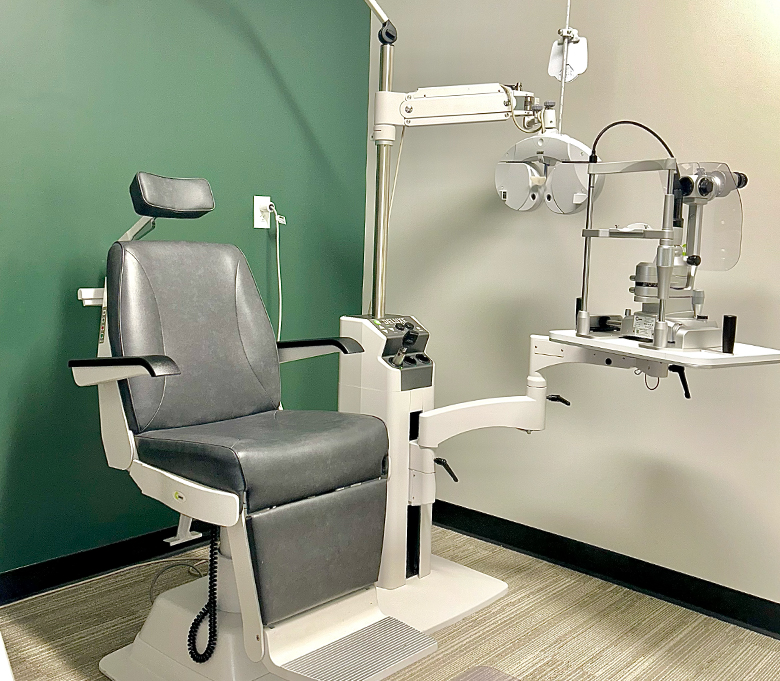
The Keratoconus Specialists
Roughly 75% of our patients come to us for keratoconus management options. There are few (if any) doctors nationwide who see a higher percentage of Keratoconus patients as we do.


